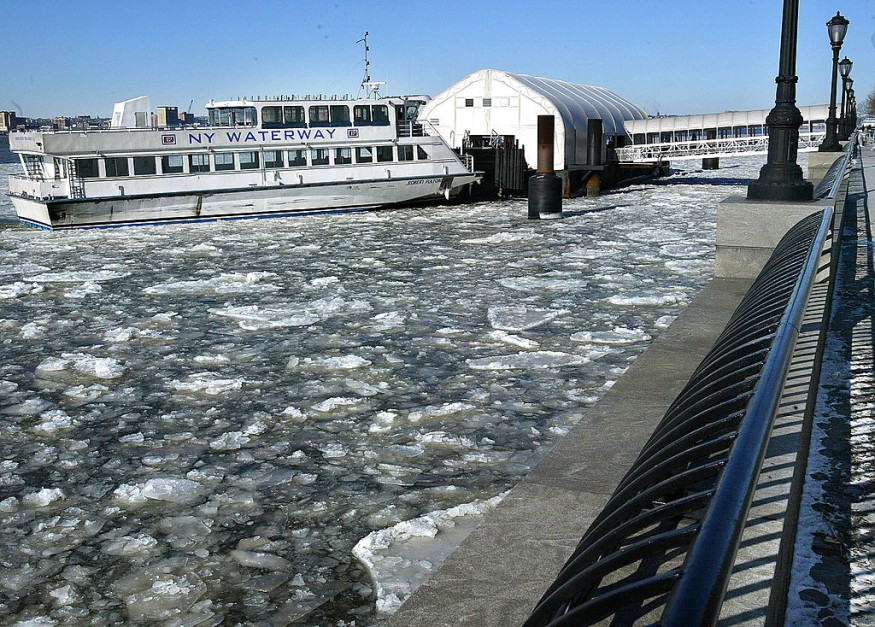
A river near a Russian city that sits just above the Arctic Circle began to 'ice-out' a month earlier than expected due to warm spring.
A footage of the thawing Yenisey River in the town of Dudinka, Russia was captured by a drone footage over the last weekend of May showing Arctic ice over the river cracking a month earlier than normal and forming bizarre figures along the river bank.
According to Ruptly, the unusual warm spring in the Russia's Krasnoyarsk region caused the early ice drift, provided that the town's location above the Arctic Circle usually experiences mild summer and severely cold winter.
The town of Dudinka serves as a port to Norilsk, a Russian city east of the Yenisei River and also north of the Arctic Circle, also known as the second-largest city and the 'northernmost city' in Siberia, with around 175,000 permanent population.
Shipping Industry in Dudinka and Norilsk
Norilsk is the center of a region where the most valuable mineral deposits such as nickel, copper, cobalt, platinum, palladium and coal are mined and refined. Technically, Norilsk and Dudinka function like an island and transport goods by using ocean-going ships. Shipping out and bringing supplies in across the Arctic Ocean or on the Yenisei River is considered essential for their region.
However, their shipping industry operates in a limited and short window due to the river's annual thawing. AccuWeather Senior Meteorologist Jim Andrews said they have short time-frame to do so.
On the flip side, NASA reports Norilsk is directly responsible for severe pollution due to smelting, generating acid rain and smog. NASA estimates 1% of the sulfur dioxide emissions globally comes from the city. NASA described that the metal pollution in the area was so heavy and severe that their soil has been extremely polluted with economic grades of platinum and palladium, making it 'economically feasible' to mine their soil.
At this time, both Dudinka and Norilsk are considered "closed cities," and carries out specific restrictions over who is authorized to visit or stay overnight.
The Law of Gravity
The Yenisey River, known as the world's sixth largest river in terms of discharge runs from south to north across the great expanse of central Siberia. However, Andrews explained that every river answer to gravity and not to a compass. This means rivers can flow in whichever direction, as long as they follow the law of gravity.
"A look at north Asia on the map shows that the coast is to the north of Arctic Ocean with land to the south. Thus, downslope is south to north," he noted.
When spring comes and increasing air temperatures melts down ice sheets, Siberian rivers generally 'ice-out' from south to north. On the Yenisei, which stretches more than 3,000 km from Southern Siberia to the Arctic Ocean, flood surge is expected to bulldoze feet-thick ice sheets out of the river banks.
© 2026 NatureWorldNews.com All rights reserved. Do not reproduce without permission.





